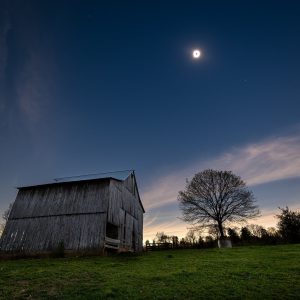
The Future of Southern Literature: Emerging Voices You Can’t Miss
The South. A region steeped in history, tradition, and often, contradiction. Its stories, etched in the landscapes of sprawling plantations and bustling cityscapes, have long captivated readers. From the gothic grandeur of Faulkner to the poignant realism of Welty, Southern literature has consistently grappled with themes of identity, race, class, and the ever-present weight of the past. But what does the future hold? The narrative is evolving, expanding beyond the established canon, and a new generation of Southern writers is emerging, ready to challenge, redefine, and ultimately, enrich the literary landscape.
Forget the magnolia-scented nostalgia. These writers aren’t just rehashing familiar tropes. They are diving headfirst into the complexities of the modern South, exploring its hidden corners, amplifying marginalized voices, and confronting uncomfortable truths with unflinching honesty. They are weaving narratives that reflect the South as it is, not just as it once was, creating a vibrant and dynamic tapestry of stories that demand attention.
This article shines a spotlight on these rising stars, offering a glimpse into their unique perspectives and showcasing the innovative ways they are shaping the future of Southern literature. Prepare to discover authors who are pushing boundaries, breaking molds, and crafting stories that will resonate long after you turn the final page.
Challenging the Southern Gothic: New Perspectives on Familiar Shadows
While Southern Gothic remains an influential genre, these emerging writers are subverting its conventions, injecting fresh perspectives and nuanced portrayals into its often-stagnant waters. They are not simply rehashing tales of decaying mansions and eccentric characters. Instead, they are exploring the psychological depths of their characters, revealing the underlying societal anxieties that fuel the gothic tradition.
Author Spotlight: Erika T. Wurth
A writer of Cherokee, Chickasaw, and Apache descent, Wurth dismantles romanticized notions of the South by injecting Indigenous perspectives into her narratives. Her work often blends genres, weaving together elements of thriller, noir, and gothic to create stories that are both unsettling and deeply thought-provoking. She forces readers to confront the historical and ongoing injustices faced by Native communities within the Southern landscape.
Author Spotlight: Maurice Carlos Ruffin
Ruffin’s writing is a masterclass in blending humor and horror. His works offer sharp social commentary on race, class, and the lingering impact of historical trauma on contemporary Southern life. Ruffin uses the Southern Gothic framework to expose the absurdity and brutality of systemic inequality, crafting narratives that are both darkly funny and deeply unsettling.
Beyond the Plantation: Exploring the Modern South
The stereotypical image of the South often centers on the plantation, a symbol of a romanticized and deeply flawed past. But the modern South is far more complex, encompassing bustling urban centers, diverse communities, and a rapidly changing social landscape. These writers are capturing the essence of this evolving South, exploring its unique challenges and opportunities.
Author Spotlight: Deesha Philyaw
Philyaw’s short story collection, “The Secret Lives of Church Ladies,” is a groundbreaking exploration of Black women’s lives, desires, and faith within the context of the contemporary South. Her writing is intimate, honest, and refreshingly candid, offering a nuanced portrayal of female sexuality and the complexities of religious identity.
Author Spotlight: Dawnie Walton
Walton’s debut novel, “The Final Revival of Opal & Nev,” is a dazzling and ambitious chronicle of a fictional Black rock duo in the 1970s. Set against the backdrop of the music industry and the Civil Rights Movement, the novel explores themes of race, identity, and artistic ambition in a vibrant and unforgettable way. While not explicitly “Southern” in setting, its exploration of Black artistic expression and the challenges of navigating a predominantly white industry resonates deeply with the ongoing conversations surrounding Southern identity.
Amplifying Marginalized Voices: A New Era of Representation
For too long, Southern literature has been dominated by a limited range of perspectives. These emerging writers are breaking down those barriers, amplifying the voices of marginalized communities and challenging the traditional power structures that have shaped the Southern narrative. They are giving voice to the experiences of LGBTQ+ individuals, people of color, and other underrepresented groups, enriching the literary landscape with a diverse range of stories.
Author Spotlight: Kiley Reid
Reid’s debut novel, “Such a Fun Age,” offers a sharp and incisive look at race, privilege, and performative allyship in contemporary America. While set in Philadelphia, the novel’s exploration of these themes resonates deeply with the ongoing conversations surrounding racial justice in the South. Reid’s witty and observant prose exposes the complexities of identity and the challenges of navigating a racially charged society.
Author Spotlight: Dantiel W. Moniz
Moniz’s short story collection, “Milk Blood Heat,” showcases the raw and visceral experiences of young women grappling with desire, loss, and identity in Florida. Her stories are unflinchingly honest, exploring the complexities of female relationships and the often-turbulent journey of self-discovery. Moniz’s writing is both lyrical and gritty, capturing the unique atmosphere of the Florida landscape and the inner lives of her characters.
Thematic Table: Emerging Trends in Southern Literature
| Theme | Description | Notable Authors | Why It Matters |
|---|---|---|---|
| Reclaiming History | Re-examining historical narratives from marginalized perspectives. | Erika T. Wurth, Maurice Carlos Ruffin | Challenges traditional interpretations of the past and provides a more accurate and inclusive understanding of Southern history. |
| Modern Identity | Exploring the complexities of identity in the rapidly changing South. | Deesha Philyaw, Dawnie Walton | Reflects the diverse experiences of individuals navigating race, class, gender, and sexuality in the modern South. |
| Social Justice | Confronting systemic inequality and advocating for social change. | Kiley Reid, Dantiel W. Moniz | Raises awareness of critical social issues and promotes dialogue about justice, equality, and inclusivity. |
| Blurring Genres | Blending literary fiction with elements of mystery, thriller, and fantasy. | Erika T. Wurth, Maurice Carlos Ruffin | Creates innovative and engaging narratives that appeal to a wider audience and push the boundaries of Southern literature. |
| Rural vs. Urban | Examining the contrasting experiences of living in rural and urban Southern settings. | Deesha Philyaw, Dantiel W. Moniz, Maurice Carlos Ruffin | Highlights the diverse realities within the South and challenges stereotypes about the region. |
Beyond the Names: Discovering Your Next Favorite Author
The writers highlighted in this article represent just a small fraction of the exciting talent emerging in the Southern literary scene. To further expand your reading list, explore the works of other contemporary Southern authors who are making waves:
- Honorée Fanonne Jeffers: A poet and novelist whose work explores themes of race, history, and family.
- Taylor Brown: A novelist whose writing is rooted in the Southern landscape and explores themes of history, nature, and human connection.
- Wiley Cash: A novelist whose work focuses on the lives of working-class people in the rural South.
The Future is Now: Engage with the New Southern Narrative
The future of Southern literature is bright, vibrant, and full of promise. These emerging voices are challenging the status quo, expanding the boundaries of the Southern narrative, and creating stories that are both deeply personal and universally resonant. By engaging with their work, readers can gain a deeper understanding of the complexities of the modern South and contribute to a more inclusive and representative literary landscape. So, pick up a book, attend a reading, and join the conversation. The future of Southern literature is waiting to be discovered.

Additional Information
The Future of Southern Literature: Beyond the Porch and Into the Digital Age – A Deeper Dive
The future of Southern Literature is not about clinging to magnolia-scented nostalgia or mimicking the voices of Faulkner and Welty. It’s about refracting the South through the prism of contemporary experiences, grappling with its complex history, and forging a new, inclusive narrative. While “emerging voices you can’t miss” promises a tantalizing glimpse into this future, a deeper analysis requires examining the forces shaping these voices and the thematic concerns dominating their work.
Beyond Tradition: Embracing Diversity and Disrupting Archetypes:
One of the most significant shifts in Southern literature is the embrace of diversity, both in authorship and subject matter. The traditional canon, dominated by white voices and often perpetuating harmful stereotypes, is being challenged by a new generation of writers from marginalized communities. This isn’t simply about representation; it’s about dismantling the myth of a monolithic South and revealing the multifaceted realities experienced by African Americans, Latinx individuals, LGBTQ+ communities, and other historically underrepresented groups.
- Example: Jesmyn Ward’s work, particularly Sing, Unburied, Sing, explores themes of racial injustice, poverty, and the enduring trauma of slavery in the Mississippi Delta. She doesn’t shy away from the harsh realities but infuses her narratives with a profound sense of empathy and resilience. This contrasts starkly with the often romanticized or paternalistic portrayals of Black characters in earlier Southern literature.
- Case Study: The rise of “Black Southern Gothic” is a fascinating trend. Authors like Maurice Carlos Ruffin (We Cast a Shadow) and Zandria Felice Robinson (This Is My America) are utilizing the Gothic tradition to explore the horrors of racism and white supremacy in a contemporary context. This genre offers a powerful tool for confronting uncomfortable truths and dismantling ingrained prejudices.
The Impact of Intersectionality: Deeper Examination of Identity:
The future of Southern literature also lies in its commitment to intersectionality – understanding how various aspects of a person’s identity, such as race, gender, sexuality, and class, combine to create unique experiences of discrimination and privilege. This lens allows for a more nuanced and realistic portrayal of Southern life, moving beyond simplistic narratives of good versus evil.
- Example: Sarah Broom’s The Yellow House, a memoir about growing up in New Orleans East, interweaves themes of race, class, and urban decay to paint a poignant portrait of a community neglected by systemic forces. The book exposes the devastating impact of Hurricane Katrina and the subsequent failure of government institutions, demonstrating how race and class intersect to exacerbate vulnerability in the face of disaster.
- Statistics: A study by the University of Southern California’s Annenberg Inclusion Initiative found that books written by diverse authors are more likely to feature diverse characters and perspectives. This underscores the importance of actively seeking out and supporting writers from marginalized backgrounds to ensure a more inclusive and representative literary landscape.
Navigating the Digital Age: New Platforms, New Voices:
The internet has democratized access to publishing and readership, providing a platform for emerging voices who may not have been given a chance by traditional gatekeepers. Online literary journals, blogs, and social media platforms are nurturing new talent and fostering a more diverse and inclusive literary community.
- Example: Online literary journals like Oxford American and Southern Cultures are actively seeking out new voices and publishing work that challenges traditional notions of Southern identity. These platforms provide a valuable outlet for writers who are pushing the boundaries of Southern literature and engaging in critical conversations about its future.
- Case Study: Self-publishing platforms like Amazon Kindle Direct Publishing (KDP) have empowered authors to bypass traditional publishers and connect directly with readers. While the quality of self-published work can vary greatly, KDP has provided a platform for many emerging Southern writers to find an audience and launch their careers.
Thematic Concerns: Land, Legacy, and the Burden of History:
While embracing new perspectives, Southern literature continues to grapple with enduring thematic concerns: the relationship to the land, the legacy of slavery and the Civil War, and the burden of history. However, these themes are now being explored with a critical eye, acknowledging the complexities and contradictions of the past.
- Example: Wiley Cash’s novels often explore the enduring impact of poverty and violence in Appalachia, highlighting the challenges faced by marginalized communities in a region grappling with economic decline. His work reflects a growing awareness of the systemic issues that contribute to poverty and inequality in the South.
- Analysis: The ongoing debate surrounding Confederate monuments and their legacy is reflected in contemporary Southern literature. Authors are using their work to explore the complicated relationship between memory, history, and identity in a region still deeply divided by its past.
Conclusion: A Future of Complexity and Courage:
The future of Southern literature is not about adhering to a fixed definition or preserving a romanticized image of the past. It’s about embracing complexity, acknowledging uncomfortable truths, and creating a more inclusive and representative literary landscape. The “emerging voices you can’t miss” are those who are willing to challenge the status quo, explore new perspectives, and grapple with the enduring challenges and contradictions of the South. By supporting these writers, readers can contribute to a future where Southern literature reflects the richness and diversity of the region in all its complexity. The porch may still be there, but the conversation happening on it is finally evolving.






